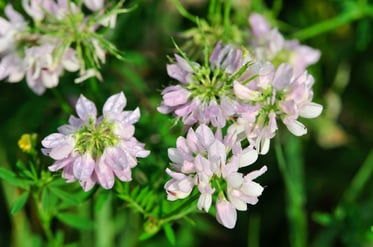
Astragalus, also known as Milkvetch or huáng qí in Chinese, is an herbal medicine used for hundreds of years. Chinese uses its roots in traditional Chinese medicine. One of the few all-purpose herbs used, it is believed to support many biological functions.
Even though Astragalus has over 2,000 species, using only two are principally in supplements – Astragalus mongholicus and Astragalus membranaceus. The central part of the plant utilized for medicinal purposes is its roots. You can create powders, capsules, and liquid extracts with their roots.
Pharmacological research has shown that the extract of Astragalus herbal medicine (Astragalus membranaceus) can benefit us. It increases telomerase activity and has immunoregulatory, antihyperglycemic, hypolipidemic, diuretic, antioxidant, and anti-inflammatory effects.
Immune System Support
Corroborated by various research studies, one of the significant benefits of Astragalus is its ability to support immune system function. According to Integrative Cancer Therapies studies, Astragalus increases the production of white blood cells (notably T cells and macrophages). Astragalus significantly boosts the immune system.
According to the Alternative Medicine Review, intramuscular injections of Astragalus for 3-4 months in patients with coxsackie-B viral myocarditis resulted in a significant increase in NK-cell activity. The patients consequently enjoyed an improvement in symptoms and general condition compared to pre-treatment levels.
Animal studies show that Astragalus also helps in killing viruses and bacteria. For instance, in a study that examined the effect and mechanism of Astragalus membranaceus on coxsackie B3 (CVB3) virus RNA in mice. The copy numbers of CVB3-RNA and the histologic necrotic sizes in myocardial tissues of AM improve. Treated infected mice were significantly smaller than that in infected normal saline-treated mice (P < 0.01, P < 0.05), respectively.” In conclusion, Astragalus has proven itself beneficial for the immune system.
Blood Sugar Health
In addition to supporting the immune system, Astragalus helps maintain healthy blood sugar levels. It is excellent herbal medicine. One study showed that taking 40-60g of Astragalus daily for four months can be beneficial. It improves post-meal and post-fasting blood sugar levels in individuals with Type 2 diabetes.
Similarly, in an animal study published in the Journal of Ethnopharmacology, the researchers examined whether treatment with the astragalus polysaccharide (from Astragalus membranaceus) improves insulin sensitivity in insulin-resistant mice. They observed that the astragalus treatment ameliorated hyperglycemia and insulin resistance. Interestingly, the Chinese frequently use Astragalus herb in traditional Chinese medicine to maintain blood sugar levels.
Heart Health Support
The profound benefits of Astragalus also extend to the heart. Many believe that the Astragalus can improve heart function by widening the blood vessels and increasing the amount of blood pumped from the heart. In one study, experts examined the effects of Astragalus on cardiac function. Administering Astragalus 2.25g twice daily to patients suffering from heart failure over two weeks, alongside conventional treatment. At the end of the study, patients who received the Astragalus enjoyed a more significant health function improvement than those who received traditional therapy only.
The result is impressive in a similar study where cardiovascular patients were given 60g of Astragalus per day by IV, alongside conventional treatment. The patients enjoyed more significant improvements compared to those receiving only conventional treatments.
Optimal Kidney Function
Many believe that Astragalus aids kidney functions. It improves blood flow, as well as markers of kidney function, such as protein content in the urine. For instance, Astragalus strengthens proteinuria – a condition characterized by abnormal amounts of protein in the urine. There is a study about Astragalus’s efficacy in treating chronic kidney disease. The result is that Astragalus significantly decreased 24-hour proteinuria at the end of treatment.
Astragalus may also help improve bacterial flora in individuals with reduced kidney functions. According to a study published in the Cochrane Database of Systematic Reviews, 7.5-15g of Astragalus taken daily for 3-6 months caused a 38% reduction in the risk of infection in patients with nephrotic syndrome with no serious adverse events reported. However, it requires more research. The existing evidence indeed reveals that Astragalus is excellent news for kidney function and, by extension, overall health.
Considered the herb of longevity, it has stood the test of time in proving itself as the king of herbs.


